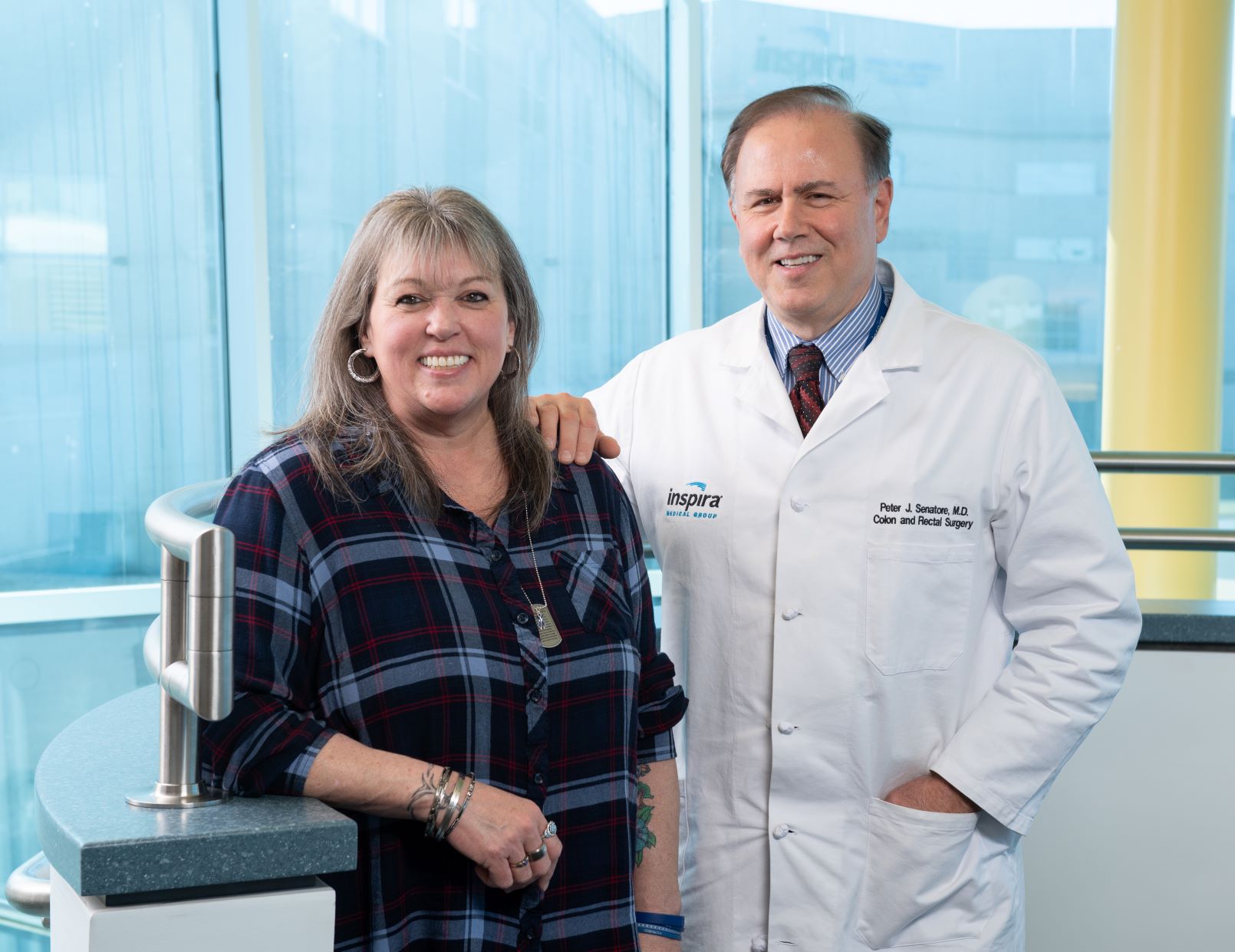For 81-year-old artist Bonnie Flanagan, an overall assessment of her health, which included a self...
Read More
Colorectal cancer begins growing in the colon or the rectum as polyps. If left untreated, these polyps can grow over many years into cancer. The larger the size and frequency of polyps, the higher the likelihood that they may become cancerous.

About 1 in 20 Americans will develop colorectal cancer. Sometimes the condition may be called colon cancer or rectal cancer depending on where the polyps first appear. The colon and the rectum make up the large intestine. About 96 percent of cancers in the colon and rectum start in the cells that make mucus to lubricate the inside of the colon and rectum. From there, it can grow through the many layers that make up the wall of the colon and rectum.
The American Cancer Society recommends people begin getting screened for Colorectal Cancer at age 45. If you are at high risk, your doctor may advise you begin getting screened earlier. Regular screenings are the most effective way to reduce your risk. Finding polyps early is key to prevention and early detection.
“The gold standard for screening is still a colonoscopy,” says Peter Senatore, Jr., MD, FACS, a board-certified colon and rectal surgeon with Inpira Health and Assistant Professor of Surgery for Rowan University. “Stool DNA testing is coming closer to colonoscopies in its ability to detect cancer, but it still has no preventative benefit. And, issues with false positive results. During a colonoscopy we can remove all polyps including precancerous polyps that could become cancerous later. “
Risk factors for colorectal cancer like age and family history can’t be avoided, but in addition to screening, the American Cancer Society does recommend these five ways to protect your colorectal health with preventive care or lifestyle adjustments:
Eat fresh and whole: Avoid red meat (beef, pork or lamb) and processed meats (hot dogs and some lunch meats), which have both been linked with an increased risk of colorectal cancer. Eat a diet rich in vegetables, fruits and whole grains.
Exercise regularly: Everyone should get at least one hour of physical exercise per day. Make regular moderate activity part of each day. This includes exercises that make you breathe as hard as you would during a brisk walk.
Watch your weight: Being overweight or obese increases your risk of getting colon or rectal cancer, as well as the likelihood it will kill you. Carrying weight around the midsection has also been linked to colorectal cancer. If you’re not sure where to start, talk with your doctor about a weight-loss strategy that includes both diet and exercise.
Don’t smoke: Long-term smokers are more likely than non-smokers to develop and die from colon or rectal cancer. Talk to your doctor about cessation programs and resources that are available to you to help you quit successfully.
Limit alcohol: Alcohol use has been linked with a higher risk of colorectal cancer, especially among men. Avoid excess alcohol.
Inspira Health provides advanced care for colorectal cancer at the Inspira Frank and Edith Scarpa Regional Cancer Pavilion in Inspira Medical Center Vineland and at the Leading Edge Cancer Center at Inspira Medical Center Mullica Hill. Call us at 1-800-INSPIRA to find the Inspira Medical Group Primary Care office and provider nearest you.

For 81-year-old artist Bonnie Flanagan, an overall assessment of her health, which included a self...
Read More
Uncover the hidden connections between your family's past and your future well-being as we delve...
Read More
Treating cancer requires an arsenal of tools and preventive measures. Explore the power of...
Read More
The material set forth in this site in no way seeks to diagnose or treat illness or to serve as a substitute for professional medical care. Please speak with your health care provider if you have a health concern or if you are considering adopting any exercise program or dietary guidelines. For permission to reprint any portion of this website or to be removed from a notification list, please contact us at (856) 537-6772